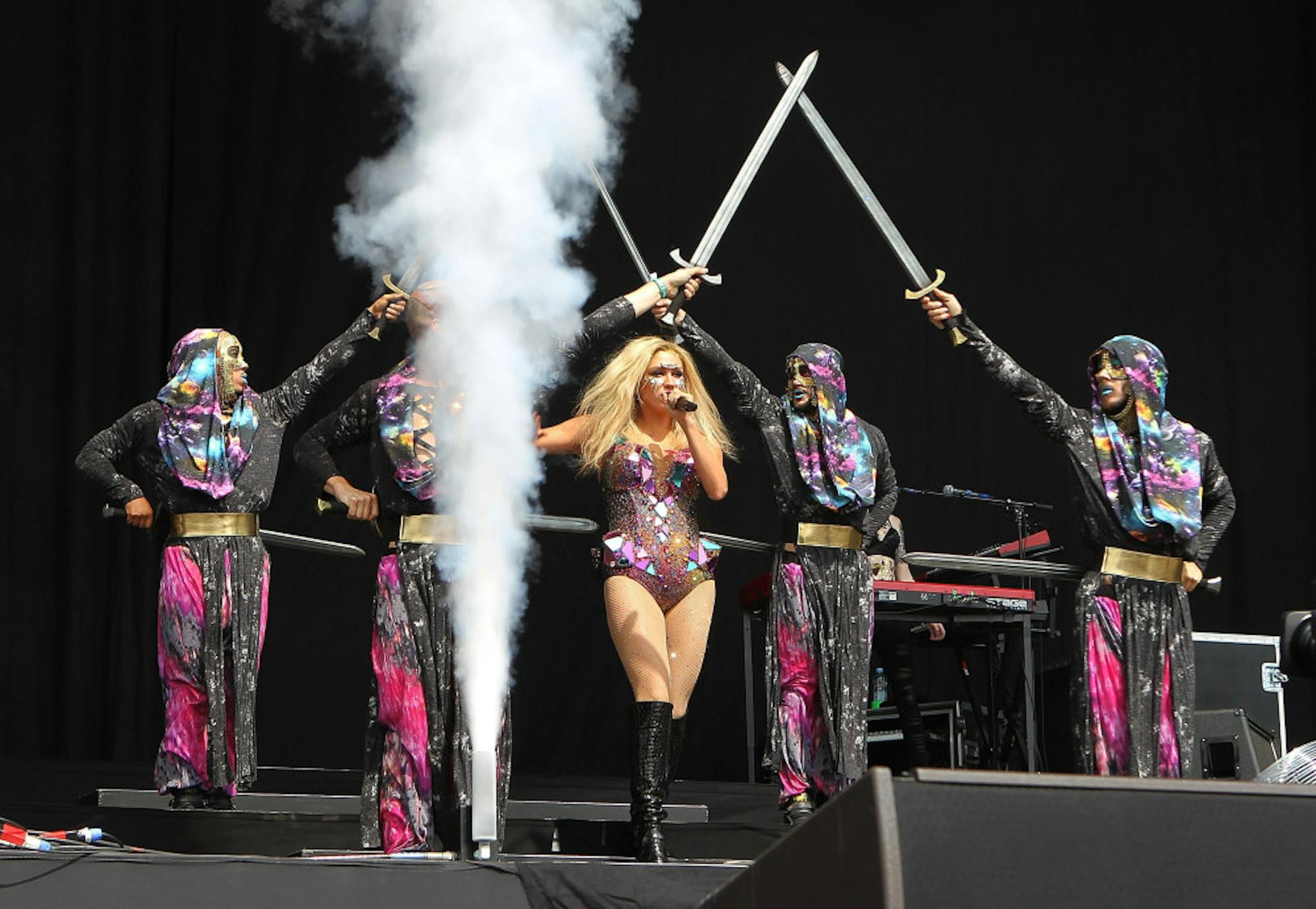A testimony to the efficiency and ubiquity of the information network on a campus as small and interconnected as Tufts, not a student could be found who hadn’t caught wind of Kesha’s anticipated performance at Spring Fling 2015 a mere hour after the news was released.
As is expected of any major announcement, the revelation of the concert’s headliner was immediately met with mixed reviews. But while students commented on how Kesha’s popularity had peaked quite a few years prior and called attention to the stark juxtaposition between her music and that of the previously featured Childish Gambino and Nelly, the overarching consensus on campus seemed to be one of excitement and contentment with the artist chosen by the Tufts University Concert Board.
A portion of this excitement stemmed from the fact that Spring Fling would feature “her” music -- and rightfully so, considering striking imbalance in gender representation in the history of Tufts’ Spring Fling. Since the second semester concert became a tradition on campus in 1980, only one female performer has been booked as a headliner -- that was Evelyn “Champagne” King in 1983 -- and closer inspection into the history of the event reveals that a solo female artist hasn’t been hired, even as an opening act, in two decades.
But, apparently, for critics the importance of this year's precedent-setting announcement, a counterweight for decades of entirely male Spring Fling headliners was not enough to satisfy. Instead, these critics seemed to feel that the chosen female performer must also, to their definition, portray women in a good light. Specifically, they argued that while it might be commendable to support women in the performance industry, it was unfortunate that the woman Tufts invited to campus to support is “trashy,” a woman who sings about sex and drugs. Furthermore, neigh-sayers argued that Kesha's persona supports the idea that women need to be over-sexualized and party hard to be successful in the media’s eye.
But perhaps the responsibility to see women as more than sex symbols or “train-wreck” party animals with just enough talent to carry them along falls not on the performer, but rather on the audience. Before we write off Kesha as another attention-seeking female pop star who degrades her fellow women by merely choosing to create her image as one of a glitter-bearing and carefree rebel, it is important to understand the double standards that exist at the core of these negative sentiments. When Childish Gambino (not so jokingly) requested that the audience of Spring Fling 2014 provide him with marijuana while he performed on stage or rapped his own misogynistic lyrics, nobody batted an eyelash. Acts such as these are part of his “hip-hop persona” and therefore forgivable -- or, at the very least, they are degrading to the genre or culture, but not to the universal idea of male performers. Kesha, on the other hand, who has, on more than one instance, used her pop-cultural success to comment ironically on the misogynistic tendencies of the music industry and the party scene, is critiqued for being unapologetically sexual and promoting reckless behavior -- the very two habits that the media convinces women to have as necessities to garnering any attention in the public eye.
And beyond that, many of Kesha’s actions make her far more than just a run-of-the mill performer with a short-lived time in the limelight, but as an unconventional role model of sorts. The singer, formerly known as “Ke$ha,” recently eliminated her trademark dollar sign from her name in an effort to eliminate toxicity in her life not long after checking herself into rehab for an eating disorder. Though she sang of self-expression and self-love, Kesha was plagued by hyper-criticism of her own body and image, fueled by a society that put her -- and most other public figures-- under an often extremely personal magnifying glass. The move to get help for herself and to continue her career without compromising her health or the image she hopes to portray is one of a strong woman, and one of a performer that should be respected and welcomed to this year’s Spring Fling.
Kesha choice sets a precedent, resists double standard in today's music

Ke$ha performing on the Main Stage at the Yahoo! Wireless Festival, at the Queen Elizabeth Olympic Park in east London, UK on July 12, 2013. Photo by Suzan/PA Wire/ABACAPRESS. COM





